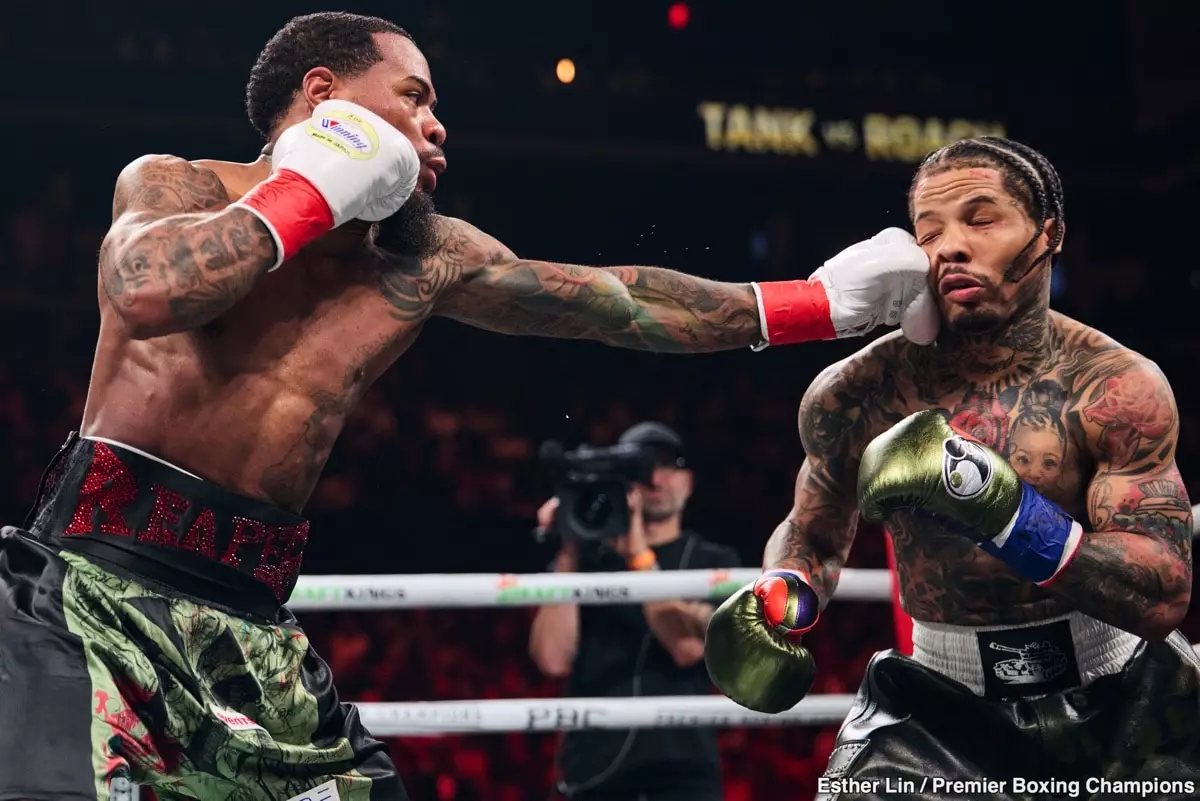The upcoming showdown between Gervonta “Tank” Davis and Jake Paul isn’t just a typical boxing match; it’s a manifestation of a sport at a crossroads. On one hand, we have a bona fide boxing champion, Tank Davis, whose skill and experience are undeniable. On the other, a social media star turned influencer turned boxer, Jake Paul, whose crowning achievement is turning entertainment and hype into a lucrative business. This matchup epitomizes the evolving landscape of boxing where spectacle often overshadows skill, raising profound questions about the sport’s future integrity.
Davis, with his status as a WBA lightweight champion, represents a level of mastery that has been cultivated through years of disciplined training, grit, and competitive experience. His dominance in the ring is well recognized, and yet, this bout seems more like a controlled experiment than a genuine contest. Meanwhile, Paul’s ability to generate interest—breaking viewership records and turning casual fans into engaged spectators—can’t be dismissed. It underscores a significant shift: boxing isn’t solely about the sport anymore; it’s about creating compelling narratives that sell.
However, the juxtaposition of skill versus spectacle also casts a pall over the sport’s credibility. Fans and purists fear that fights like Davis vs. Paul threaten to dilute the discipline and artistry of boxing into a circus of entertainment. Is this a sign of decline or simply a strategic adaptation? Only time will tell, but what’s clear is that boxing is no longer confined within its traditional boundaries. It’s now an industry driven by content, personalities, and eyeballs, often at the expense of technical excellence.
The Shadow of the Future: Unfinished Business and Game Changers
Amid this spectacle, the departure from traditional matchups reveals underlying frustrations within the boxing community. Gervonta Davis’s recent decision to sidestep a potential rematch with Lamont Roach Jr.—a fight that many felt was owed—speaks volumes about the priorities shaping today’s boxing scene. Roach, a talented fighter with a respectable record, had every reason to expect a return bout after their controversial draw. Instead, Davis’s focus seems to have shifted toward high-profile exhibitions designed to maximize payday, not sporting legacy.
Roach’s candid social media backlash reflects a broader disillusionment. His message, dotted with emojis and laced with disappointment, hints at a fighter who has seen the sport’s integrity compromised by greed and spectacle. “Told ya, lol,” Roach’s succinct statement underscores a feeling that fighters are often pawns in the industry’s marketing machine—more interested in money and fame than legacy-building.
Yet, in a surprising twist, Roach has already begun shifting his attention to another strategic move: a possible showdown with WBC lightweight champion Shakur Stevenson. This potential matchup, once it materializes, could reassert some credibility to Roach’s career ambitions and perhaps restore faith that genuine competition still exists amid today’s carnival-like atmosphere. It also hints at a possible rejuvenation of fighter-versus-fighter rivalries that box fans crave.
But the question persists: will these rivalries come to fruition, or will they be lost in the endless pursuit of spectacle? The sport’s health depends on balancing entertainment with genuine competition. Fighters like Roach—whose careers are often overshadowed by the bigger stars—must navigate a landscape where doing what’s right for the sport sometimes conflicts with what’s profitable for the industry.
The Role of Authority and Future Directions
The sport’s custodians—promoters, sanctioning bodies, and broadcasters—are at a pivotal juncture. They have a responsibility to uphold the legitimacy of boxing, encouraging high-caliber matchups and protecting fighters from becoming mere pawns in a hype-driven system. The Davis vs. Paul fight, although lucrative, exemplifies how boxing’s core values are being challenged. It raises a critical question: can boxing preserve its integrity while embracing new forms of entertainment?
At the same time, fighters like Roach symbolize the resilience of traditional boxing values. Their willingness to challenge the status quo and seek meaningful competition demonstrates that the sport’s soul isn’t entirely lost. It’s crucial that fans, too, exercise discernment—demanding fights that matter over mere spectacle. The future of boxing hinges on whether the industry can strike a balance where entertainment fuels growth but does not erode its foundational qualities.
Ultimately, this period should serve as a wake-up call. Boxing’s greatest strength lies in its rich history of legendary rivalries, technical mastery, and storytelling. If the sport continues down this path of prioritizing showmanship over substance, it risks alienating the very audience that makes it special. But if it leverages these high-profile events to bring in new fans while cultivating genuine talent, boxing can remain a vibrant, respected sport for generations to come.


Leave a Reply